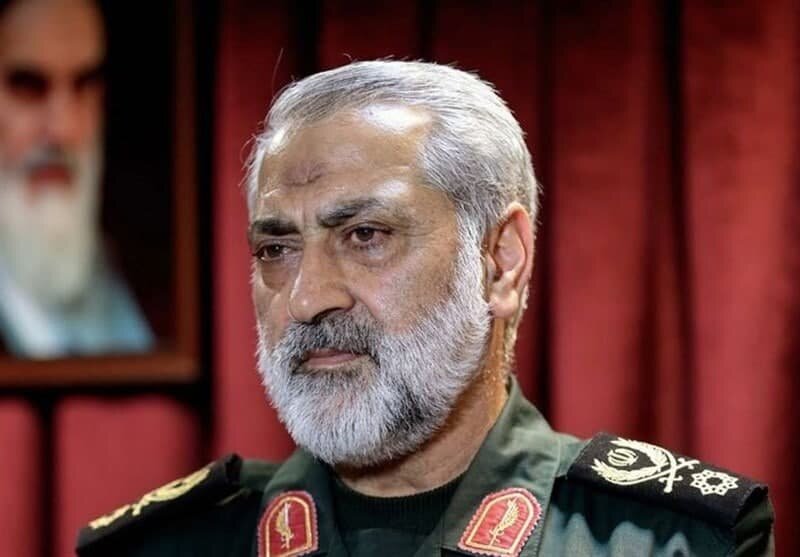Israel failed to sustain war even with Western support: Iranian commander

TEHRAN - The Spokesperson for Iran’s Armed Forces, Brigadier General Abolfazl Shekarchi, said on Thursday that Israel was compelled to retreat by the ninth day of the recent conflict, declaring that the regime’s military and intelligence infrastructure had been “reduced to rubble” under Iranian strikes.
Speaking at a ceremony in the holy city of Qom, General Shekarchi said that despite the martyrdom of top Iranian commanders during the initial hours of the conflict, the Islamic Revolution Guard Corps (IRGC) Aerospace Force—under the guidance of the Leader of the Islamic Revolution and rapid restructuring—was able to deliver deep and sustained attacks against Israeli positions.
He described the path to occupied Palestinian territories as a heavily fortified corridor, with hundreds of U.S., British, German, and French-supplied radar systems, fighter jets, and air defense batteries deployed to intercept Iranian missiles and drones. “None of them succeeded,” he stated. “From north to south, the occupied territories were struck directly and effectively.”
Israel launched the war with full U.S. and Western backing, aiming to dismantle Iran’s command chain and critical infrastructure in hopes of triggering domestic instability. “By the seventh day, after repeated battlefield failures, the Zionist regime called on Washington for direct intervention. Yet, even with full-scale U.S. support, they failed to meet their strategic goals,” General Shekarchi said.
He added that the Leader of the Islamic Revolution had declared the outcome a clear victory for the Resistance Front. “By the ninth day, the enemy had exhausted its military and intelligence capabilities and could no longer sustain the war,” he said.
Shekarchi emphasized that the failure of Israel’s advanced defense systems to intercept Iranian missiles had decisively shifted the regional balance of power. He also highlighted the psychological toll on Israeli forces, noting that “for the first time in over 70 years, the occupying regime’s military was forced to shelter under heavy Iranian fire.”
He also accused Western-aligned media of suppressing the scale and reality of the battlefield developments, saying, “The global media outlets aligned with hegemonic powers are actively working to conceal the truth.”
The war began on June 13, when Israel launched a surprise attack targeting Iran’s civilian nuclear sites and assassinating senior military and scientific personnel. Tehran responded hours later with a large-scale missile and drone campaign under the operation True Promise III.
On June 22, the United States formally entered the conflict, launching airstrikes on Iran’s nuclear facilities at Fordow, Natanz, and Isfahan using bunker-buster munitions—an act Tehran condemned as a violation of international law.
In response, Iran targeted the U.S. Al Udeid Air Base in Qatar with ballistic missiles, demonstrating its readiness to escalate if necessary.
Amid growing casualties, internal unrest, and concerns about further Iranian retaliation, Israel accepted a unilateral ceasefire on June 24, effectively ending the 12-day conflict.
Leave a Comment